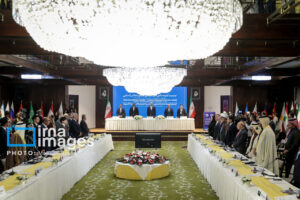Addressing a meeting titled “Unilateral Coercive Measures: Obstacles to Trade and Sustainable Development,” on Tuesday, Bahraini said that unilateral sanctions, contrary to the claims of countries professing to defend human rights, directly target ordinary people’s lives.
He emphasized that unilateral coercive measures have deprived developing nations of access to essential technology, investment, and medical services. Furthermore, he noted that these sanctions not only exert pressure on the economies of these countries but have also intensified suffering and hardship among vulnerable populations.
Bahraini emphasized the unique role of the United Nations Conference on Trade and Development (UNCTAD), stating that it is well-equipped to assess the effects of sanctions and offer international solutions.
He further called for a clause to be included in the final document of the conference, requiring UNCTAD to regularly evaluate the impacts of unilateral sanctions and provide countries with solutions to mitigate them.
The meeting titled “Unilateral Coercive Measures: Obstacles to Trade and Sustainable Development” was held on the sidelines of the sixteenth United Nations Conference on Trade and Development (UNCTAD 16). It featured the participation of ministers, ambassadors, and permanent representatives from developing countries, including the Islamic Republic of Iran, China, Venezuela, Cuba, Belarus, and the Executive Director of the South Center [an intergovernmental organization based in Geneva].







